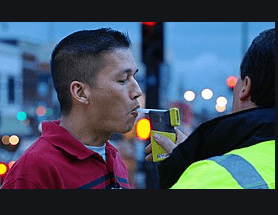Busted for DWI: What Happens Next


Thousands of Americans drive while intoxicated (DWI) every day. Although most of them have only had one or two beers, a significant number is fully impaired and can easily cause serious road accidents. People get away with it until the day they’re stopped by police with reasonable suspicion.
In most cases, police do not know whether or not you are drunk before stopping you. Police may have you pull over for minor infractions such as blocking a motorway, hesitating on an intersection, swerving between lanes, and disobeying traffic lights. However, police will recognize signs of intoxication while they speak to you. So, what happens when you’re caught for DWI?
Police Observation
When police officers stop you for minor road infractions, they usually ask for your driving license or vehicle registration and proof of insurance. If you show signs of intoxication, such as alcohol odor or slurred speech during the interaction, police have the legal right to detain you. This is the first step towards filing driving while intoxicated charges, and there is no doubt everything will show up in the police report.
Police questioning is the next step that is conducted to ascertain whether you have been impaired. Some drivers might admit that they have consumed alcohol, but only one or two bottles of beer. One drink probably isn’t enough to make you drunk. However, your analysis isn’t going to persuade police to let you go.
Roadside Tests
Field sobriety tests are usually conducted to determine the level of impairment among drivers who have denied the issue of driving while intoxicated. However, for any roadside test, police must get the necessary consent from the driver. Field sobriety tests give police officers justifiable evidence to incriminate a driver. Some of the field sobriety tests include:
- One-leg stand
- Walk and turn
- Straight-line walk
- Horizontal gaze nystagmus
- Breathalyzer tests
- Blood alcohol concentration test
Breathalyzer and blood alcohol concentration tests vary from one state to another. This means that the level of impairment varies from state to state. Because the accuracy of breathalyzer is debatable, some people may want to refuse the test. But according to Randal B. Isenberg legal advisor, refusing to submit to a breath or blood sample could lead to your being charged for a DWI.
Appearing in Court
If the sobriety test conducted by the officer determines that you are impaired, chances are you will be given a ticket to appear in court. In other instances, police will tow your car and take you to jail so that you can appear to the judge the following day. The judge determines your sentence.
If this is your first DWI, you may have a shorter sentence. It may even be classified as a misdemeanor instead of a felony. However, if you broke any other laws, caused property damage, or bodily harm, you could face a felony charge for your first offense (source).
Even if you evade imprisonment, you could still be subject to fines or other penalties. There are specific legal provisions that calculate the fines for driving while intoxicated. Multiple charges are likely to apply, such as endangering children if you had any in the car or evading arrest if you tried to run away from traffic police. Some penalties that you may get include:
- Losing your driver’s license
- Curtailed driving privileges
- Paying court fines
- Serving probation and associated administrative expenses
- Undergoing alcohol evaluation
- Mandatory ignition interlock device
Get Legal Help
Driving while intoxicated is a criminal offense and can be a complicated legal experience for anyone. The fact that each state has its specific DWI laws can be confusing. An experienced lawyer can help you understand your state’s DWI laws and what these charges might mean for you.


